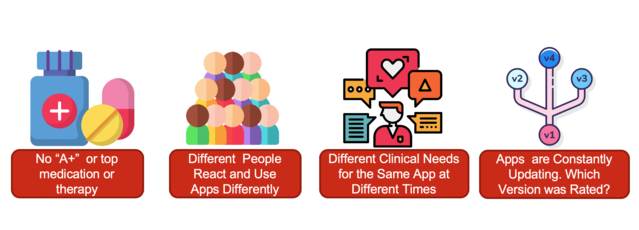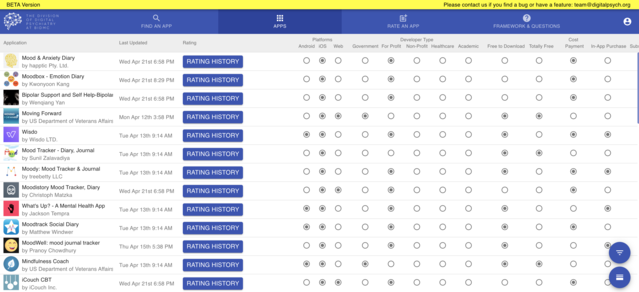Health
Matching Mental Health Apps with Trust and Transparency
Looking for the perfect app? Try instead for the perfect match.
Posted April 21, 2020
This blog post was co-written by John Torous MD and Sarah Lagan BS.
During these uncertain times, individuals worldwide are increasingly turning to smartphones for mental health support. Video chatting, telehealth visits, and crisis hotline texts are all on the rise. So too is the use of mental health apps, which offer a range of features for self-management and connection, from CBT and mood tracking to peer support.
But with the estimated 10,000 available mental health apps, how do you choose the right one that meets your needs? And with the many risks -- like lack of data security and unsubstantiated claims of effectiveness -- that apps may carry, how do you make sure that the app you choose is safe and effective? While app store metrics like stars, number of downloads, and qualitative reviews can provide some insight, they don’t necessarily indicate clinical utility or usability. And although there are numerous different app evaluation frameworks, these measures are not standardized or up to date, making it difficult for a user to parse the subjective metrics and actually find a relevant app.

That’s why we’ve developed a database of mental health apps where users can sort through an extensive list of mental health apps and find ones that suit their needs and desires. Each app’s entry in the database is informed by a set of objective questions that align with the APA App Evaluation model: app raters contribute to the database by answering over 100 objective questions about the app across the areas of Accessibility, Privacy & Security, Clinical Foundation, Features & Engagement Style, and Interoperability. On the other end, a user can filter apps based on desired features, privacy settings, platforms, and more. Recognizing that app choice is a personal decision based on many individual factors, the goal of this database is to equip users with the information necessary to make a decision based on the app characteristics that matter most to them. We don’t have any score or make recommendations because different people at different times have different needs. Just as no score can find the best therapy or medications, any score of an app ultimately is going to be biased and inaccurate - especially considering how often apps update and infrequently rating website’s scores themselves do so. Ultimately, we aim to provide a tool that helps individuals harness the potential of mental health apps in the context of their own preferences, personal background, and clinical needs.

Our database is totally open and still growing - right now in beta mode. We invite collaboration and crowd-sourcing: the app rating consists of objective questions that require just a short training to answer. If you are interested more in contributing to the database as an app rater, please do not hesitate to reach out!
Note: The views expressed in this piece are personal and do not reflect those of John Torous or Sarah Lagan's employers.


